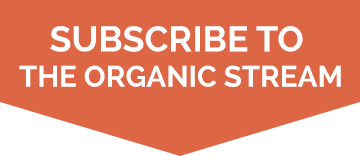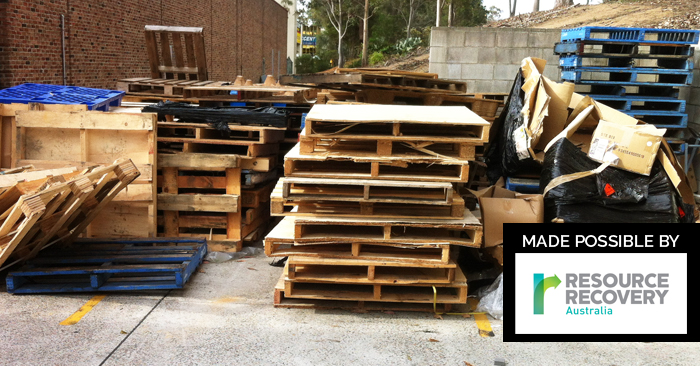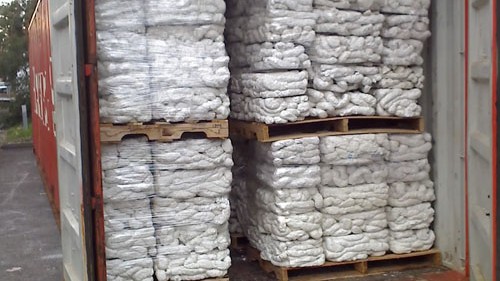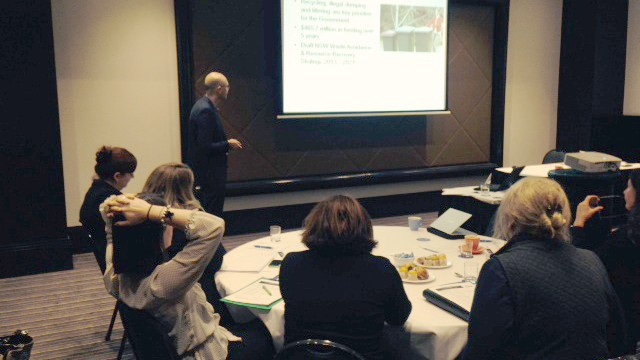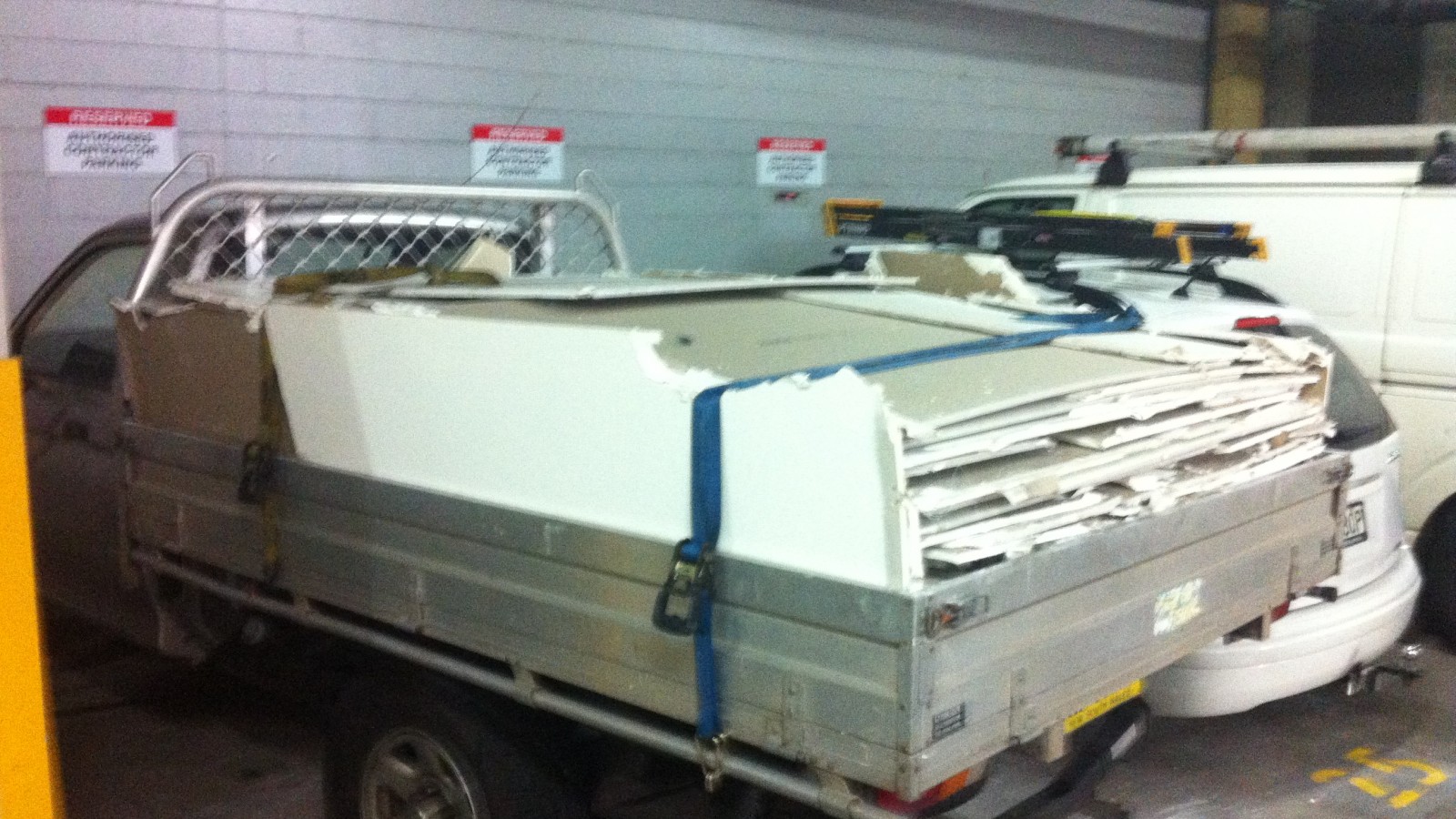TRANSCRIPT
A Solution For Diverting Business Waste From Landfill
Q: How and why did the Industrial Ecology program come to be?
Phil Molyneaux: It started about six months ago. We were looking at this for a long time, trying to think of creative ways to work with businesses. And we set up a program to work with small to medium sized businesses – so, those who were employing up to two-hundred people, but mainly concentrating on those who were employing twenty people in their business, so the small businesses. And they’re notoriously contact; there’s an enormous number of them in New South Wales – there’s something like six hundred and fifty thousand of those in New South Wales alone. There’s a lot of small businesses. And we thought we would like a program looking at opportunities to work with larger businesses as well. And that was where the Industrial Ecology, or the Industrial Symbiosis program came about.
Q: Can you give our audience more on an idea of what exactly is the program, and how it runs?
PM: The program is about…we’re paying for facilitators who have a background and an understanding of local areas to work with local businesses and help local businesses to fin creative solutions for their waste. So what we’re doing is we’re paying for a person, called a facilitator, to work in a local area, and we split the state up into six regions – relatively arbitrary regions – and we’re working with the facilitators, providing funding and providing assistance to them to work with local businesses.
So what they would do is they would hold meetings in their regions and identify businesses that want to work to reduce their cost of waste disposal. In New South Wales there’s a levy on materials going to landfill; the government tries to encourage recycling, and one way of doing that is to put a levy on the tonnes of material going into landfill, and that is about one hundred and twenty dollars per tonne – and then the waste industry themselves have a gate fee. So, someone estimated that in Sidney, and the capital cities, the cost of putting material into landfill is something in the order of about three hundred and fifty dollars a tonne, with transport costs included.
That means it’s quite expensive to put material into landfill, but some businesses feel that that’s just the cost of doing business, and they’ll keep doing it. But what we’re trying to say is that the New South Wales government is working with businesses to try to encourage them to recycle that material, and therefore avoid much of that cost of disposal.
Q: What’s the timeline of the project – how long are you planning for it to go on for?
PM: We would like to keep it going for four years. We’re sort of half way, or a third of the way through the first year of the program. Our hope is to be able to suggest to the facilitators we’re working with – that we’ve trained and encouraged and supported – and encourage them to continue to do this work themselves, because they will have had the skills and experience, and see that there’s an opportunity for them to make money.
One of the people who is advising us in this program has said that he’s been doing industrial ecology, or industrial symbiosis, for a number of years himself and he says to businesses: “I can find a way to save you a hundred thousand dollars a year on your waste bill, are you prepared to pay me half of that?” And a number of companies have said to him, “Yes, sure we can do that”. So, at the end of the financial year he gets his check for fifty thousand dollars and is quite happy.
And that’s where we think a number of these people who have been trained in these regions – with skills and connections in those regions…because it’s local regions. We’re such a big state that there isn’t the money to move this waste from one section of New South Wales to another. It’s best if the local region deals with that waste in the best way – and it’s relatively expensive to transport these materials: food waste is heavy, timber waste is really quite heavy.
The Businesses And Organisations Participating.
Q: What kind of organisations or businesses are you looking to work with, and what qualities to the facilitators need to have?
PM: There are criteria, and we were very careful when we gave the original grants out. We were looking at companies that had a track record of working with local businesses; innovative in looking at recycling options; skills in leadership – we’re looking for a particular type of person who’s going to be the facilitator, and that person has to have a certain amount of charm, a bit of an ability to hold meetings and to network with people, and to be persistent.
So a lot of the time, how they’ll go about it is they’ll have a meeting in one of the small cities around the state. They’ll talk a bit about the idea of recycling and mention a couple of success stories of local businesses that are recovering, say, timber pallets or food waste in a region, and they’ll perhaps get one of the people doing this to talk. And they’ll say, “can we sit down and chat with you about that idea”. And they’ll give them a cup of coffee, get them to come back after a few minutes of networking, and they basically sit down with all the people interested in timber waste sitting down at one table, and the people interested in food waste or recycling plastic or metals and the like, sit down at separate tables and network together.
Then, the facilitator will try and gather that information and try to encourage those people that have been networking – someone who has food waste and wants to find someone who can use that food waste (maybe someone who is a local composter, or someone who has a farm and can take that food waste and it’s lawful for them to take that food waste), and then we assist those two to get together. And sometimes it’s just a case that they’re just down the street from each other, and they didn’t realise that both existed, or both had that need. Or, we need to organise some sort of transport between them. So it’s a case of negotiating, and it really takes someone with some skills and persistence: people are busy, people have always wanted to do this, but they’ve just never had someone to facilitate that connection.
Q: So the want is there, we just need to make it happen…
PM: That’s exactly right.
Goals and Outcomes: What Impact Will Industrial Ecology Have?
Q: Can you tell me then what are the core outcomes expected of the program?
PM: Good comment. Well, we’re going to invest four million dollars over the four years of the program, and we would like to see (and we’ve got some numbers to indicate this is quite possible) a return of something like twenty one million dollars in initial income or savings for the community. We’d like to target one hundred and sixty thousand tonnes of landfill diversion. We’re well on the way – of the first four months of the program, we’ve certainly seen a significant targeting of several thousand tonnes of material.
Q: What is the business case for the program?
PM: Well, the business case is that idea that there is a saving for business; there is a responsibility in government to reduce the amount of material that is being sent to landfill; there is a responsibility in government to reduce litter and waste, and to encourage business to be more efficient and competitive in an international market. And obviously, the New South Wales Environment Protection Authority has a desire and a responsibility to stop productive material from being wasted, and see that material return to the proactive economy – that’s our chief objective. But we also see that it’s going to be of benefit to business efficiency in the economy. And we’re already seeing benefits in our society of a cleaner environment, and environment where there’s less litter, less material going to landfill. Even though we have a large area, landfill space is very valuable, particularly in the cities that land can be sold and used very well if it’s not being used for a landfill.
Q: Have you any notion on how businesses are taking to the program so far? Is it popular, or are there any challenges to getting them interested?
PM: I think it’s like a lot of things with the environment and with businesses, you know – it’s always tough for businesses to keep their heads about water and keep going. Everyone’s trying to be more competitive and everyone’s trying to save some money. They often don’t consider their waste as a way of saving money; they often think that waste is just something they need to get out of the way so that they can get on with the business of doing business. So, they accept that waste is a cost of doing business, and what we like to say to them is: well, maybe we can pull this area apart a little bit, have a look at this idea, and maybe there’s significant saving in reducing the amount of material going to landfill.
And then the other benefit we’ve found with a number of companies is…you know, we started on this track a couple of years ago, thinking that were just going to save money. But the bosses have come back to us and said they’re really excited because staff are more engaged and interested. We’re doing something in our business that we haven’t done before: we’re recycling at work and doing the things we’ve been regularly doing at home with our bins. We separate our dry recyclables at home, some have got compost bins, some have worm farms… and they’re saying, “It’s really exciting, we’re doing something different at work!” And they’re motivated.
One company came to us and said to us that they were just so excited that it significantly reduced staff turnover, and to him that saving is just amazing because his staff were continually leaving. Not because there wasn’t anything bad about the company, but it just wasn’t really interesting. He’s saying, “Now we’ve got a much more interesting environment, my staff are engaged. We’re almost got to zero waste…they’re very excited, they’re very keen to come to work and try something different”.
Changing Hearts & Minds: Challenges Along The Way
Q: What kind of issues or challenges have you had so far, and how are you overcoming them?
PM: The thing that’s tricky is just the perception that businesses have: “You’re asking me to do something about my waste, but I’m asking my staff to change their habits. This could be a little bit more expensive that just sending the material to landfill…” And we’re trying to say to them, “Look, why don’t you just try that?” So, we’ve been tackling that by encouraging managers and facilitators to talk with the staff, and to look at the fact that they are recycling at home; they’ve been asked for a number of years by the New South Wales government to recycle material in their municipal bins, and they’ve been doing that very successfully. And we point to the real cost savings, and just encourage people to look at this as a social responsibility.
A number of companies respond to that. Not all – but there’s a certain politics of envy, when someone’s done it well other companies come along and say, “well, I think we could have a go at that”. And it’s always good to see someone who’s been successful in this area and likes to get up and say, “Well, we did this. It wasn’t easy, but it wasn’t all that hard, and we had a lot of fun on the way.” And a number of companies get up and say that.
Q: And I suppose the landfill levy that you have has really helped in getting businesses on board?
PM: It has. It’s certainly a driver in New South Wales. The levy operates in the major cities – in the country areas the levy doesn’t operate all that much. But in the cities, another big driver is the cost of transport, whereas in country areas you don’t have that cost of travelling around the city and spending time in clogged arteries.
In country areas the cost of doing things are significantly reduced, but there may not be as many opportunities. So, that’s what we’re finding the challenge is in country areas. They don’t have the population, they don’t have the number of reuse opportunities, but then again they don’t have the costs that are associated with a city operation.
Q: I see, so that is a bit trickier then to work with?
PM: It is a bit tricky, but what we’re arguing is that there are opportunities in both situations. There are a number of companies that are prepared to work, because they’ve got lower overheads in country areas, land is not as expensive. They want to keep staff, they’re looking at opportunities to reduce their costs, and recycling is a reasonable option.
Q: And looking at the future now briefly, what’s the long-term vision for the EPA in New South Wales after the completion of the program?
PM: We’re doing work on a succession plan for this. Basically, instead of supplying the fishing line, we’ve decided to go with the model of teaching people how to fish. And we’ve really worked at encouraging, with our facilitators, to take up this challenge, and to work with local people in their community; develop strong connections in their community, and look for local solutions.
Industrial Ecology – Can We Take It Globally?
Q: How do you think this program could be replicated in other countries around the world – would it be vastly different in another context?
PM: Yeah, I think it would. We’ve shamelessly borrowed a program from the UK that’s been highly successful: the National Symbiosis Program, or NISP. And we feel that it’s a simple, transferable model. A number of people we’ve spoken to in the UK have given us an indication of how they’ve done it; we’ve spoken to a number of people who have visited the UK. And what they basically do is what we’ve tried to apply, that is: you talk with a number of businesses in a local community, you try and identify opportunities, and you make sure you work with the willing – don’t try and drive people to work with you if they don’t want to do that – and, you look at creative opportunities with those willing people.
You just persist with those people and look for ways to do it. Sometimes it’s fairly tenuous or timorous and takes a little bit of time for that to work out. But once people start to see that this is possible to do, and there’s an opportunity to do it, they start to realise that this is quite good.
We had a meeting with our team facilitators the other day, and several of them said, “Do you know, I didn’t know how we were going to do this. I was a bit scared at the start. But you know, there’s some great opportunities out there – and I’m having a lot of fun!”
Q: Well that I’m sure is a big plus!
PM: It is! It is.
Creating Jobs & Building Sustainable Societies.
Q: Often times recycling initiatives have a great opportunity to create jobs. With this program, can you see jobs being created for local communities or?
PM: Look, certainly. I think there are opportunities to create jobs, but there’s probably more opportunities to save jobs from leaving an area. Obviously as technology changes, businesses tend to move people out of dangerous jobs and to reduce the workload, and obviously increased mechanisation has reduced the number of jobs. A way to meet that challenge is to provide better jobs, safer jobs. And there are some great jobs in recycling and opportunities in recovery. There are some estimates of quite significant savings in local areas through people who will recycle the material rather than see it go to landfill, and see that material return to the productive economy, rather than see it just sitting in a landfill.
Q: In relation to the Industrial Ecology program, do you see any opportunities that it could bring to empower disadvantaged groups in society?
PM: It’s a good question, and it’s interesting to see that there are opportunities to work in community groups. One of the regions is working with refugees and supplying them with organic material so that they’re growing their own food in a community situation, and that’s very exciting. So, there are some opportunities – a number of organisations are working with them at the moment and looking at opportunities to work in that space.
We find that, as with in all communities, a lot of disadvantaged groups move towards the lower cost areas and that often tends to be outside the cities, and that’s where a lot of recycling opportunities might be. And it’s an opportunity work; it’s certainly an opportunity where some of the disabled groups have thought, “well, let’s use staff to do that”, and a number of disabled groups are using leftover timber from manufacturing to make items.
It’s got to be thought-through very carefully, and there are some opportunities there if it’s done well.
Q: Do you have any final words about the program or to businesses out there who might be interested in becoming part of something like this?
PM: I think the idea is looking. Just go out the back of your building or their manufacturing site, or their business, and look over the fence and see if there’s somebody that could use something that you’re throwing away. So have a look what’s in your bin, and have a look at what other people are using. There are a number of companies that have said, “I didn’t realise that people were buying these boxes that I’m throwing away”, or, “Someone could use these plastic bags that I’ve just been putting in the bin”. And there’s some great opportunities to share, and to see waste as a resource rather than something that needs to be thrown away.

